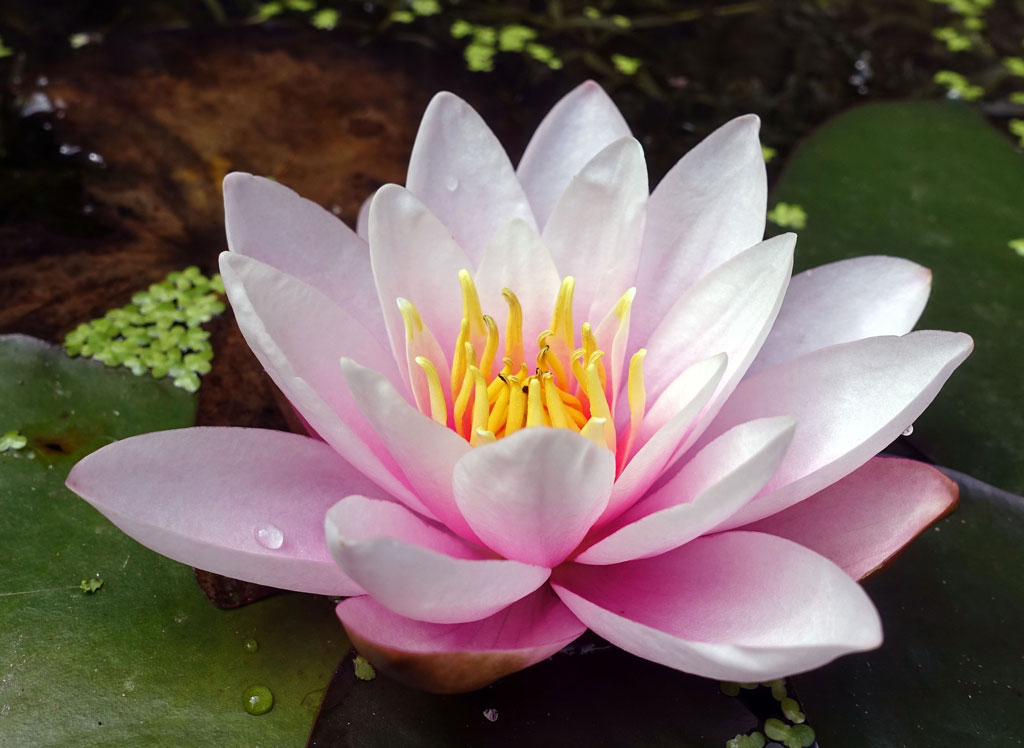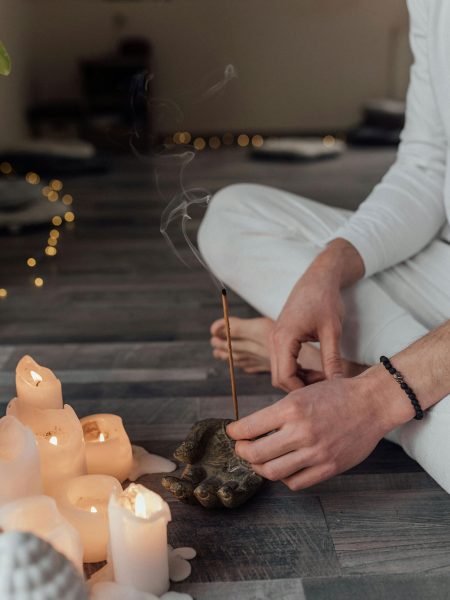With the practise of meditation, there is no end to the progress we can make. However, when we first dip our toes in the world of meditation, progress can feel a little uncertain.
It is important not to be impatient or too hard on yourself. Just remember we have spent 20, 30, 40 years thinking, but now we are trying to break a habit of a lifetime and enter into the inner silence. Unfortunately, it is not like turning off a tap! However, if we are patient and persevere with our effort and practise, we will make progress.
These are a few more tips to help you make progress in meditation.
Value the benefits of meditation
The most important thing is to give value to our practise of meditation. We value food, so we always make time for eating. If we can remember how much we need and benefit from moments of inner peace, it will encourage us to be regular in our practice of meditation.
Regularity and punctuality
If we can meditate every day at the same time, it will create a very helpful energy. For example, suppose we commit to meditating every morning at 6.30am; then every day at this time, we make this meditation a priority in our day. If we meditate only when we ‘feel like it’ – before we know it a whole week can go by and we never had the opportunity to meditate.
In the beginning, it may feel like a discipline and we need to make a personal effort. However, if we can get over this initial challenge, it will become an effortless habit. We will automatically want to meditate because we can’t think of a better way to start the day. Just imagine a big heavy wheel. At first, it is really hard work to get it moving, but, once we get a little momentum, the heavy wheel starts to move with only a small amount of effort.
Don’t expect
Sometimes we are impatient to have a particular meditation experience. Perhaps we have read in a book about experiences other meditators have had. But, when we don’t have the same experience, we feel we are not making progress in meditation. This is a mistake – everyone is different. Meditation is not about having particular experiences; it is more like a journey. If you feel inclined to keep meditating and keep trying, this indicates something within you is being fed by meditation. This is a good sign of progress. Also, if we feel happiness and a sense of peace from meditation, this is also a good sign of progress. When we meditate well, we will have a good feeling about ourself and also about the rest of the world.
“We can easily know whether we are meditating well or not just by the way we feel and see and think. Right after our meditation, if we have a good feeling for the world, then we know our meditation was good. If we see the world in a loving way in spite of its imperfections, if we can love the world even while seeing its teeming imperfections, then we know that our meditation was good.” – Sri Chinmoy ¹
Enthusiasm
The particular techniques of meditation are not as important as our inner enthusiasm and aspiration to develop our meditation. If we have this enthusiasm and approach meditation with all our combined energies, then we will make great progress. There is no secret meditation technique which guarantees the fastest progress. The fastest progress comes from a burning desire to enter into a new world of peace and happiness.
One-pointedness
When you enter our period of meditation, try to make sure there are no temptations or distractions to reduce our focus. Meditate in a place and at a time when we will not be disturbed. Switch off the phone, don’t think of the future or the past, but try to be in the present moment. Give yourself enough time. Perhaps you can spend five minutes reading a spiritual book – this will help you get in the right frame of mind – then meditate for 10 minutes, and then perhaps give yourself another five minutes to assimilate the meditation by listening to some spiritual music or being still. This takes 20 minutes, but it gives a better chance to go deeper into meditation than if we only allow ourselves only 5-10 minutes.
Practical things
There are some practical things that can help meditation. Have a shower, or at least put cold water on your face, ears and hands. Where light, clean, comfortable clothes. Don’t meditate straight after eating a heavy meal. Sit on the floor or chair with a straight back.
Meditate with others
Meditation is a personal practice, but if we meet up with others who meditate once or twice a week, then we will get an added inspiration to continue our meditation. When we meditate with others, we feel an added inner strength.
Keep the body fit and healthy
If we look after our body, then it will be easier to meditate. If we go for a run, it helps clear the mind and also it cultivates a sense of dynamism. Both of these are helpful for the inner meditation. Sri Chinmoy was a great believer in the benefits of the outer running helping the inner running.
“Running helps us considerably. Running is continuous motion. Because of our running, we feel that there is a goal — not only an outer goal but also an inner goal.” – Sri Chinmoy ²
Meditation and life
The most important aspect of meditation is the actual practice of sitting quietly and trying to calm the mind. But we can try to cultivate a meditative experience in other avenues of life. When we work, rather than grumbling about our boss or fellow co-workers, we can try to work with a silent mind, concentrate on the job and try to work with a feeling of service to others. If we work in the right spirit, it can do a lot to help our meditation.
Bring the heart to the fore
Don’t just fight your mind; try to bring your heart to the fore. We can do this by meditating on the heart and also listening to spiritual music that touches our inner being. When we focus on the heart, we will feel there is a place in us beyond thought and limited understanding.

